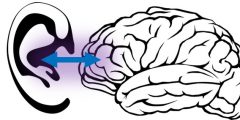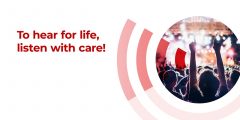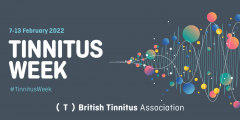Hyperacusis in children
May 18, 2022
Is your child sensitive to sound (called hyperacusis) Or are you a clinician who works with children who are sensitive to sound? WE HAVE COMPLETED THIS PART OF THE STUDY WITH CLINICIANS. WE ARE NOW RECRUITING PARENTS AND HAVE A NEW POST ON 24 JANUARY 2023 TO EXPLAIN. Please help us in designing …
COVID and hearing – please help us
March 23, 2022
Have you had COVID before? Do you feel this has affected your hearing and balance or had no effect at all? Seventeen more volunteers needed to complete our study on COVID and hearing! Could you be one of them? It is two years to the day since the first national UK COVID lockdown was …
Patients and public leading at the crossover of mental health and hearing
March 3, 2022
Hearing and mental health overlap For what remain as ‘hidden’ disabilities, hearing and mental health conditions are incredibly common: 1.6 billion people live with hearing loss, while 792 million people are affected by mental health issues. Despite their prevalence, social stigma is attached to both and there is little public understanding of their impact. Also, …
Use hearing aids but struggle to hear well enough? Take part in the COACH trial.
Take part in research comparing hearing aids to a cochlear implant in adults with severe to profound deafness. NICE (National Institute for Health and Care Excellence) examines all the evidence to decide guidelines for clinical treatment. Based on the current evidence, adults may be offered a cochlear implant on the NHS when they have at …
World Hearing Day 2022
World Hearing Day is held on 3 March each year to raise awareness on how to prevent deafness and hearing loss and promote ear and hearing care across the world. It is led by the World Hearing Forum of the World Health Organisation (WHO). The focus for 2022 is on the importance of safe listening …
Participant to partner: a research journey
Katrina Copping uses hearing aids to help with her hearing loss and tinnitus. Katrina is working alongside researchers at the Nottingham Biomedical Research Centre (Hearing Theme) as a Patient Research Partner. Emma Broome is a Research Fellow at the Biomedical Research Centre. In this blog, Katrina and …
Helping research improve treatments for single-sided deafness more quickly – An agreement on what is important to measure
February 25, 2022
Roulla Katiri, on behalf of the CROSSSD initiative, for Hearing Matters UoN blog. Much clinical research sets out to improve and develop new treatments for health conditions. But usually, no one piece of research is enough to be sure which treatments are best. We need to build up a body of many different research studies …
Using apps to help manage your tinnitus
February 10, 2022
It is #TinnitusWeek this week. We are continuing with our tinnitus research and you can read more about what we are doing at: https://nottinghambrc.nihr.ac.uk/about-nottingham-brc/news/3777-hearing-theme-raising-awareness-of-tinnitus-as-numbers-of-patients-predicted-to-rise. We thought we would take this opportunity to highlight one way that people might find helpful for managing their tinnitus. Do you have a smartphone or tablet? Do you know that …
The use of hearing aids by adults with hearing loss, how should we define and measure success?
June 22, 2021
Jean Straus uses hearing aids to help with her hearing. As a member of the public with first-hand experience of hearing loss, Jean is a valued member of the research team, providing a unique perspective, ensuring the research is designed around patient needs. Jean would like to share the following with you. ‘The use of …
Acoustic Neuroma 20 Years On In 2021
May 27, 2021
Single-sided deafness refers to the condition where there is normal or near-normal hearing in one ear and a severe to profound hearing impairment in the other ear. The Core Rehabilitation Outcome Set for Single Sided Deafness (CROSSSD) study is aiming to identify what is critical and important to measure when testing treatments for adults with …










